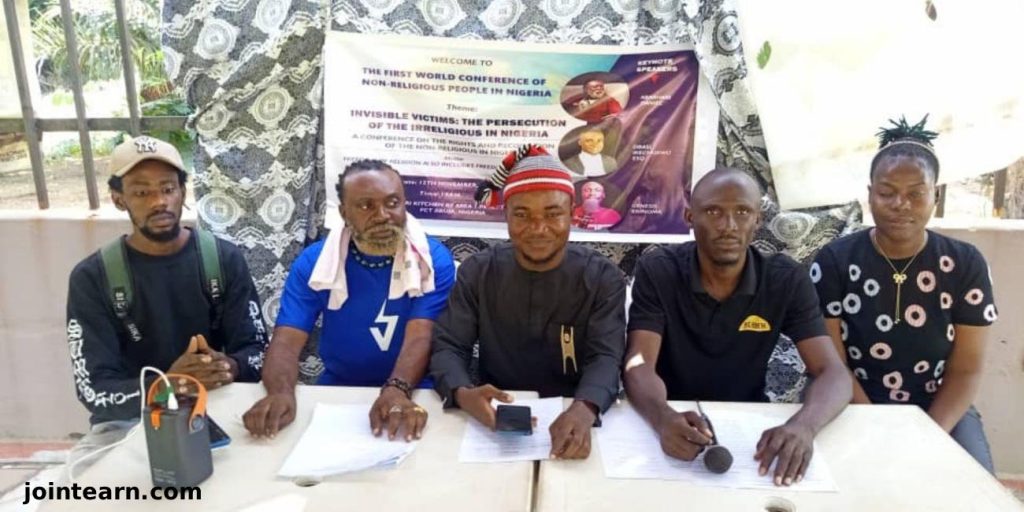
The Non-Religious People in Nigeria (NRPN) has called for full recognition and respect for non-religious citizens, urging the Nigerian government to uphold constitutional secularism and end discrimination against those who choose not to follow any faith.
The call was made on Wednesday during the World Conference of Non-Religious People in Nigeria, held in Abuja, where participants demanded that Nigeria’s secular constitution be fully enforced to protect both freedom of religion and freedom from religion.
“Freedom from Religion is Part of Freedom of Religion”
Delivering the keynote address, Obasi Ikechukwu, Esq., examined the legal foundations of religious freedom and the constitutional rights of non-religious Nigerians.
He cited Section 38(1) of the 1999 Constitution, which guarantees every citizen the right to freedom of thought, conscience, and religion — including the right not to belong to any religion at all.
“The persecution of the irreligious is a direct violation of our Constitution,” Ikechukwu said.
“The law is clear: every Nigerian has the right to think freely, believe freely, or choose not to believe at all.”
He called on all arms of government to protect true secularism in governance, adding that “freedom of religion cannot be complete without freedom from religion.”
Discrimination and Social Stigma
In a moving address, Abraham Daniel spoke about the daily struggles of non-religious Nigerians, who often face exclusion, harassment, or even imprisonment because of their beliefs.
“Even though Nigeria is a secular nation, that secularism exists only on paper,” Daniel said.
“Many of our people have suffered — some jailed, others silenced — simply because they chose reason over religion.”
He appealed to Nigerians to view the non-religious not as moral outcasts but as equal citizens driven by conscience and humanity.
“To be non-religious is not to be immoral,” he added. “We love not because a holy book commands it, but because our conscience compels it. We love because we are human.”
Concerns Over Religious Indoctrination in Schools
Another speaker, Genesis Eririoma, presented a paper titled “How Nigeria’s Educational System Promotes Inequality Against Non-Religious People and the Role of Critical Thinking in Building a Freer Society.”
He criticised Nigeria’s education system for encouraging religious indoctrination while stifling independent thought.
“Our schools reward memorisation, not reasoning. They teach what to think, not how to think,” Eririoma said.
He called for the inclusion of Critical Thinking, Ethics, and Debate in Nigeria’s school curriculum and announced his forthcoming book, “Critical Thinking for Secondary Schools,” aimed at equipping students and teachers with analytical reasoning skills.
“Critical thinking is not anti-religion; it is pro-reason,” he explained. “Education should liberate minds, not conform them. The goal is to defend freedom — the freedom to believe, the freedom not to believe, and above all, the freedom to think.”
A Call for Equality and Constitutional Secularism
The conference concluded with a united call for equality, respect, and recognition of non-religious Nigerians by government institutions and fellow citizens as an integral part of the country’s diversity.
Participants reaffirmed that Nigeria’s promise of secularism must be upheld in practice, not just in theory.
“Freedom of religion must include freedom from religion,” the closing statement read. “Our nation’s strength lies in its ability to protect all — believers and non-believers alike.”
The World Conference of Non-Religious People in Nigeria serves as a platform bringing together freethinkers, humanists, and advocates of reason to promote secular governance, defend freedom of thought, and champion equality for all Nigerians — regardless of belief or non-belief.


Leave a Reply